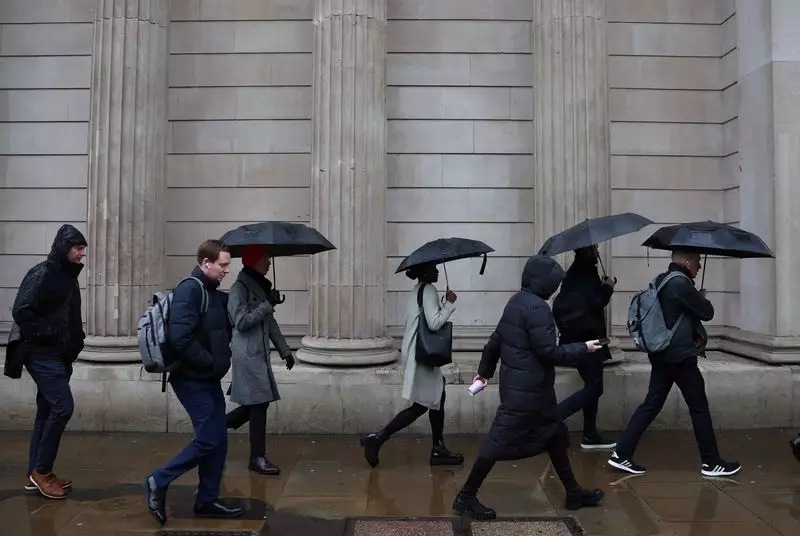Recent data has painted a concerning picture of Britain’s labour market, with indicators pointing toward a consistent decline in both wage growth and hiring activity. According to the Recruitment and Employment Confederation (REC) and KPMG, the latest survey revealed a significant slowdown in the growth of starting salaries for permanent roles, dropping from 52.8 in September to 52.5 in October—marking the weakest performance observed since early 2021. This decline in wages suggests a hesitance among employers to offer competitive pay, which is often a crucial element for attracting new talent.
Amid rising uncertainty in the political landscape, particularly with the new Labour government’s budgetary measures, businesses are now more reluctant to hire. This caution is further exacerbated by the REC’s findings, which indicated a drop in permanent placements, the sharpest observed since March of the previous year. As companies brace for potential financial implications from proposed tax increases—announced as part of a £40 billion budget package by Finance Minister Rachel Reeves—many executives fear that this could have an adverse effect on their capacity to recruit new staff. High social security contributions and increased minimum wage stipulations are particularly notable, as they directly impact operational costs for businesses.
In response to these wage growth trends, the Bank of England (BoE) has expressed continued vigilance in monitoring the situation. The central bank recently lowered its interest rates from 5% to 4.75%, indicating that while there are signs of wage stagnation, the overall economic landscape still requires further scrutiny. REC’s chief executive Neil Carberry opined that the data presented in the latest report offers little indication for the BoE to halt its strategy of reducing interest rates, which is expected to eventually foster greater business confidence.
Another critical element highlighted in the survey is the ongoing contraction in job vacancies, which fell for the twelfth consecutive month. This consistent downward trajectory may suggest a broader decline in demand for staff across various sectors. Compounding this issue is a significant rise in the number of available candidates—now for the twentieth month in a row—which indicates an oversupply of job seekers in the market. In particular, there has been a notable increase in the availability of temporary staff, marking the fastest growth rate in nearly four years.
The repercussions of the latest budget and the tempered economic climate will likely continue to weigh heavily on hiring practices in the months ahead. KPMG’s Jon Holt remarked on the challenging outlook, indicating that the anticipated tax increases could significantly dampen hiring ambitions as businesses struggle to manage the expected additional costs. As companies work to navigate this landscape of financial pressure, the outlook for the labour market in Britain remains uncertain. The combination of stagnant wage growth, fluctuating job vacancies, and an oversaturated candidate pool suggests that the pathway forward may require strategic reevaluation for both employers and job seekers alike.

